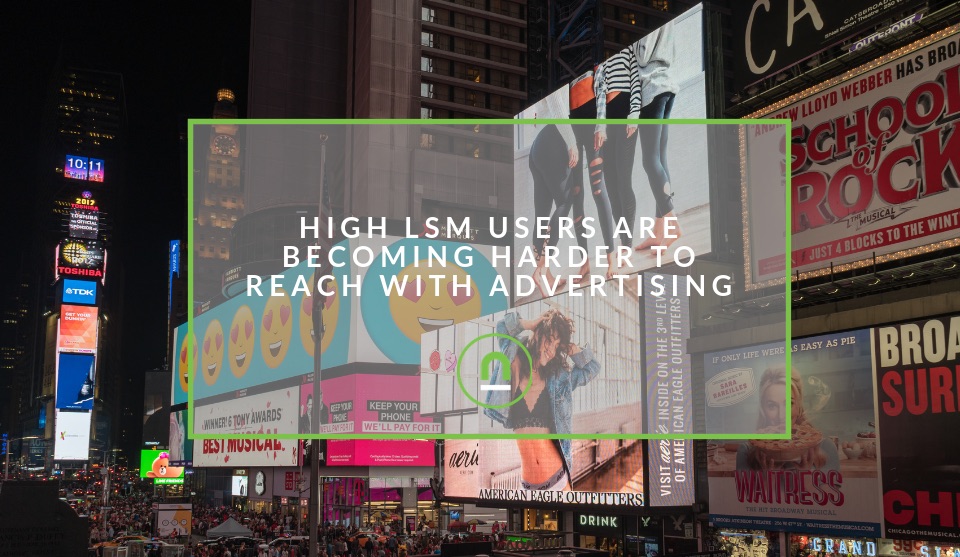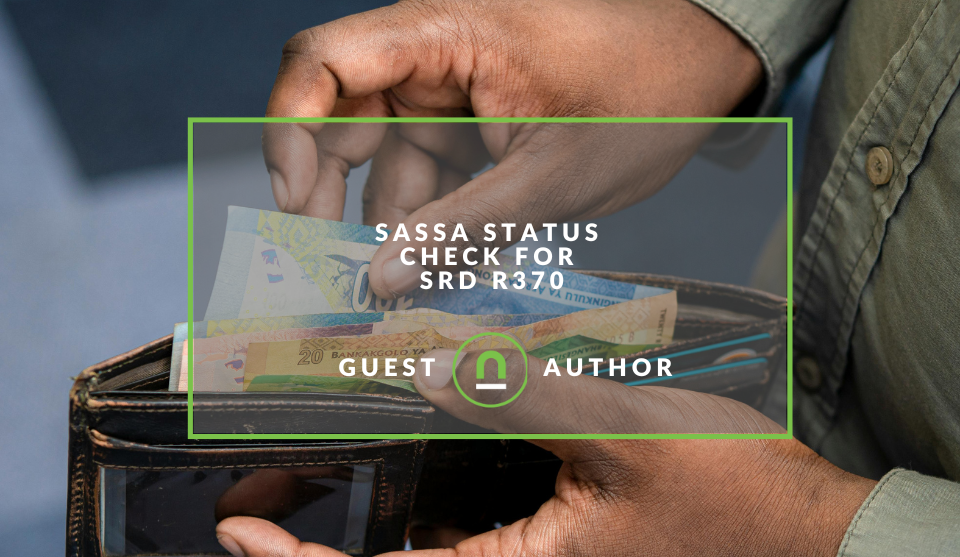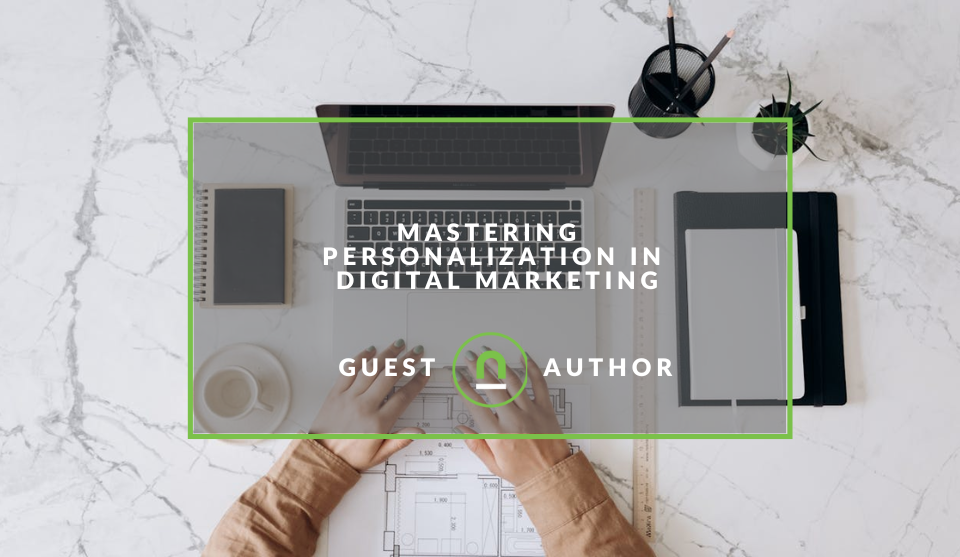Recent posts
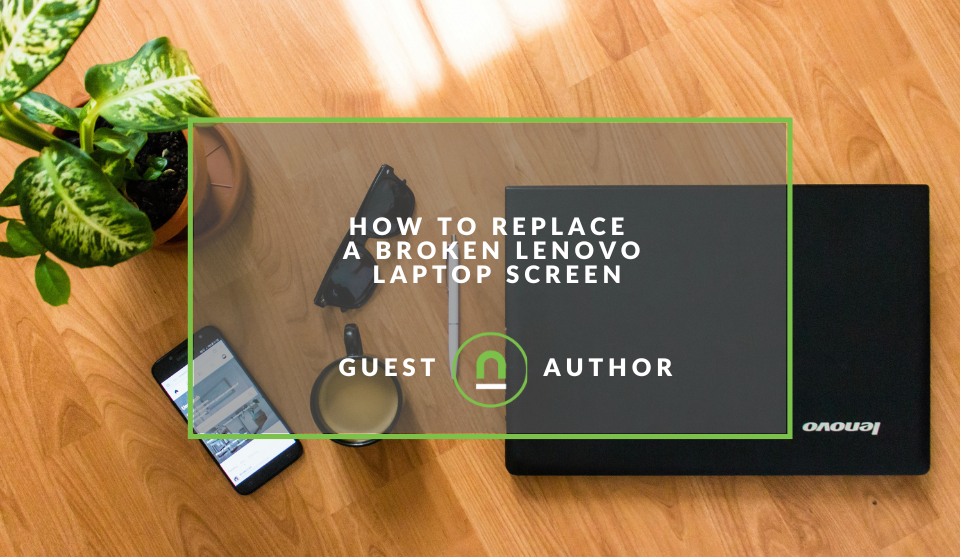
Geek Chic
How to Replace A Broken Lenovo Laptop Screen
24 April 2025
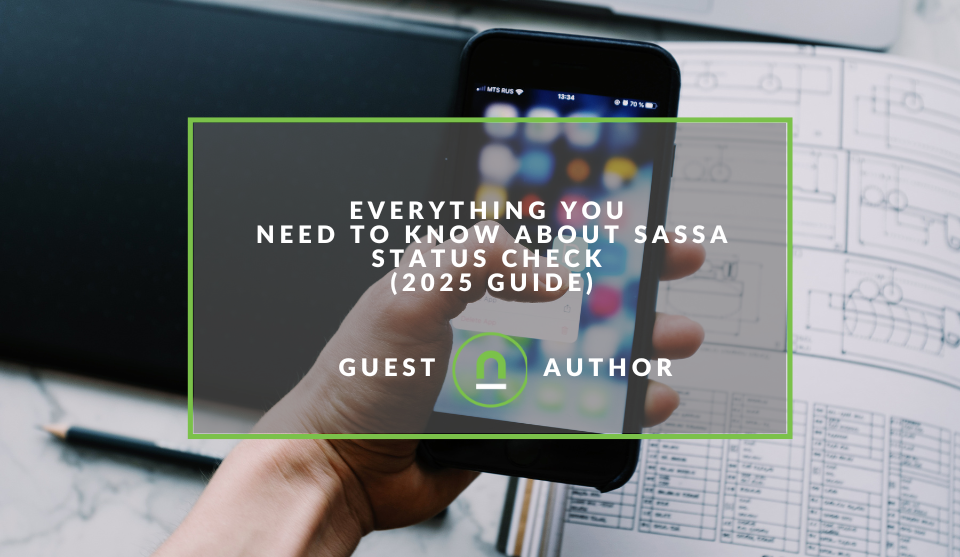
Money Talks
Everything You Need to Know About SASSA Status Check
13 April 2025

Mind, Body & Soul
The Genetic Diversity of Cannabis Seeds
12 April 2025
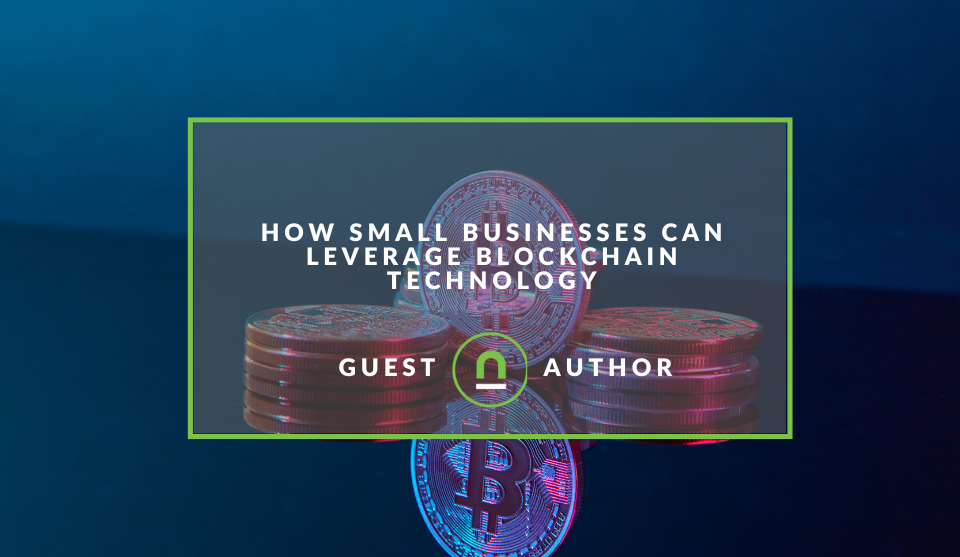
Money Talks
How Small Businesses Can Leverage Blockchain Technology
02 April 2025
Popular posts
Extravaganza
Trending Music Hashtags To Get Your Posts Noticed
24 August 2018
Geek Chic
How To Fix iPhone/iPad Only Charging In Certain Positions
05 July 2020
Extravaganza
Trending Wedding Hashtags To Get Your Posts Noticed
18 September 2018
Money Talks
How To Find Coupons & Vouchers Online In South Africa
28 March 2019
High LSM Users Are Becoming Harder To Reach With Advertising
30 April 2019 | 0 comments | Posted by Che Kohler in nichemarket Advice
While digital marketing continues to grow and evolve with more advertising spend moving from traditional media to online each year, we're starting to see this competition make traffic harder and harder to come by. 2018 was the first year we saw referral traffic from search engines and social media decline year on year, and 2019 will be no different with 3rd party platforms becoming decidedly stingy about how they direct traffic away from their sites.
Internet users are beginning to mature and are looking for experiences that aren't tainted by intrusive ads, this is particularly true for the wealthy, and we're starting to see these savvy high LSM internet users remove themselves from the advertising eco-system with the help of adblockers and paid services.
The publishing model was a race to the bottom
Digital advertising for all its glory and wonder was doomed to become saturated, and with the majority of digital inventory controlled by Google and Facebook, these attention auctions were only going to benefit these monopolies. First, they got businesses hooked on the product, and now these businesses cannot reduce their dependency on these advertising platforms. As more businesses became dependant on paid ads, and as competition increases, prices for clicks will continue to rise based on the demand.
Eventually, those who cannot afford to compete will have to call time on their ad campaigns and often times their business.
The rise of Ad Blockers, freemium & subscription services
Added to that, there is now an increasing number of ways people are avoiding ads when listening to music or reading the news, whether by paying for services such as Spotify Premium, Netflix, Medium or making use of ad-blocking software. EMarketer predicted that by the end of 2018, 30% of internet users in the US would be using an ad blocker, up from 25% two years earlier.
Protip! nichemarket has partnered with Brave Browser to provide users with an ad-free web experience.
These individuals are more often than not, highly savvy and part of a higher LSM which is the key demographic for many online retailers, subscription services and even B2B service providers. This is an alarming trend when you consider that your high wealth individuals will slowly become less and less receptive to your ads and lead quality from these platforms will begin to suffer.
Advertising to the wealthy
Digital Marketers have been flagrantly shoving ads in front of people for years without regard to the user experience. We have terrible ad loads; web pages are slow and horrible, especially as earnings become a concern we see advertisers becoming increasingly aggressive. This is a strategy that is unsustainable and a concern for advertisers trying to reach high-income consumers who can afford to pay to avoid ads.
Advertising to the wealthy will only get harder over time and more expensive for advertisers to reach. Marketers are increasingly finding the upscale consumer to be stronger in advertising avoidance, more fickle in engaging with content, and too time-poor to retain messaging.
If people pay for the ad-free experience, they do so because the cost is worth avoiding ads. Which instead of making advertising a native experience, it becomes something you have to put up with because you’re unable to afford an ad-free environment and is seen as a sort of punishment.
This leaves us with the question, who are you advertising to, then? Brands stand to lose if they can’t adapt and while agencies and advertisers aren’t overly concerned about it now, it's going to catch up to them soon enough.
How will advertisers readjust?
The now beaten to death term called omnichannel will spring to mind and will continue to be a buzzword during this crisis for traffic and quality traffic at that. Brands will need to start reducing the dependency on paid advertising look to improve direct communication and leverage organic traffic. While social media organic has become increasingly throttled, more brands will need to look to SEO to bring in sustainable traffic and reduce CAC (customer acquisition costs). Advertisers will need to look at spreading spent accordingly to and not work in silo's as once was the case.
It will be an interesting adjustment that I feel is welcomed. Too many brands have simply gotten away with spending on online advertising without a thought to user etiquette and experience. Treating every platform that provided paid ads as a mass marketing tool with a spray and pray approach. This change will give rise to a more strategic approach, and digital marketers will have to think outside the box and be creative with how they reach their intended consumers.
This change will also see brands focus less on traffic and impression numbers which were the preffered measurement metrics, and it will now rely heavily on soft conversion and hard conversion rates.
What will happen to those who will get blindsided?
Unfortunately, not everyone is open to adopting or changing when they find something that works; they tend to beat that horse until its dead. A case that many brands will face very soon. As traffic from paid media become less effective, the average basket size is reduced, conversions slow down, and CPA's rise brands will start to feel the pinch.
Brands will try to find an equilibrium they can play in or cut costs in marketing departments or with digital ad agencies, but without having built up direct lines of communication or a strong brand most of these companies, some will have to call time on operations while others try to pivot to an omnichannel approach. But for most of them that do pivot, it will be too late.
Tell us your traffic story
Have you been losing traffic to your website? How has it affected your business or your earnings as a publisher, blogger or eCommerce site? Share your story with us in the comments.
Contact us
If you would like to know more about digital marketing or would like us to work on marketing campaigns for your site, then contact us today.
List your South African business for FREE
If you are struggling to get leads online, then create your free business listing on nichemarket. The more information you provide about your business, the easier it will be for your customers to find you online. Registering with nichemarket is easy; all you will need to do is head over to our sign up form and follow the instructions.
If you require a more detailed guide on how to create your profile or your listing, then we highly recommend you check out the following articles.
Recommended reading
If you have some time to spare and would like to dive deeper down the rabbit hole that is digital marketing, then why not check out the following posts.
You might also like
SASSA Status Check for SRD R370
26 March 2025
Posted by Khan Sahab in Money Talks
Check your SASSA SRD R370 status online! Get quick updates on your application. Learn how to track your grant and understand the status check process...
Read moreMastering Personalization in Digital Marketing
31 March 2025
Posted by Željka Ristic in Industry Experts
We look at the best content marketing tools to boost engagement and growth and build sustainable marketing campaigns that drive users to take action
Read more{{comment.sUserName}}
{{comment.iDayLastEdit}} day ago
{{comment.iDayLastEdit}} days ago
 {{blogcategory.sCategoryName}}
{{blogcategory.sCategoryName}}
